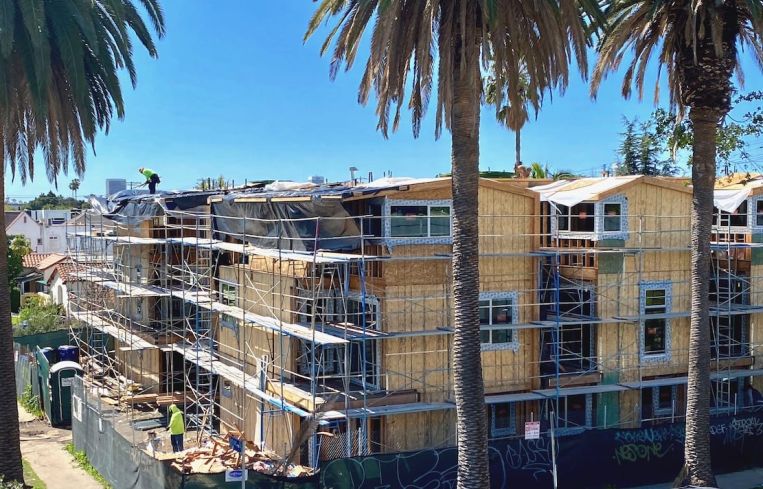Shutdowns Amplify LA’s Housing Crisis, with Apartment Development Dropping 30 Percent
L.A.'s multifamily production hits five-year low, on pace for 9,100 new units by the end of 2020
By Greg Cornfield August 19, 2020 3:30 pm
reprints
The pandemic and economic shutdowns are exacerbating the years-long housing shortage in Los Angeles.
The coronavirus outbreak is putting overwhelming pressure on developers, and apartment construction is starting to mirror the downward trends of the Great Recession, according to a new report by Yardi Matrix. The L.A. metro area is experiencing a 30 percent drop in multifamily development compared to 2019, bringing supply of new apartments to a five-year low.
The issue further complicates an already visible slowdown in apartment construction, and is particularly detrimental as the region continues to grapple with an era-defining housing and affordability crisis. California landlords and property owners this year were already dealing with a new statewide rent control law as well as rising construction costs and a notoriously stubborn entitlements process. And, in response to the pandemic, the city of L.A. enacted an emergency rent freeze on most of its rental units, as well as a moratorium on evictions for non-payment of rent, further limiting property owners and landlords.
The drop in multifamily construction coincides with data released by the L.A. Department of Building and Safety earlier this month, which showed overall permitting in the city was down 45 percent in the second quarter this year compared to 2019. A report released Wednesday by Marcus & Millichap showed average rent was at $2,264 per month in L.A. in the second quarter. There were 3,520 units completed, and a vacancy rate of 4.8 percent.
State courts will allow eviction proceedings to continue in September, which could cause vacancies to increase dramatically. But the City of L.A.’s eviction moratorium will still be in place for the remainder of the state of emergency.
This year has been difficult for the apartment industry across the country, with more than half of developers reporting delays in construction due to the pandemic, according to a survey released in July by National Multifamily Housing Council. With 283,000 new units expected to be delivered nationwide this year, apartment construction dropped 12 percent in the U.S. compared to 2019, with 13 of the 20 most active metros expected to complete fewer units compared to last year, according to the report by Yardi Matrix.
The L.A. metro area saw the fifth largest decline in the nation among the top 20 metro areas in terms of apartment construction. Miami is experiencing the largest drop at 53 percent, with Chicago dropping 26 percent; D.C. dropping 24 percent; and New York City dropping 18 percent.
The pandemic and corresponding work-from-home phenomenon could also accelerate an urban exodus from L.A. to nearby suburbs or other more affordable areas. For example, at the other end of the spectrum, the Inland Empire region in Southern California is seeing a 62 percent increase in new apartments.
The exodus is playing out most dramatically in the Bay Area. San Francisco currently has twice as many homes available as it did last year, according to a new report by Zillow. Yardi Matrix showed San Francisco apartment construction dropped 11 percent in the second quarter compared to last year. But San Jose jumped 100 percent in the same time period.



